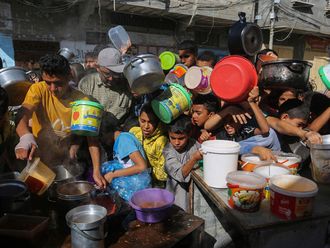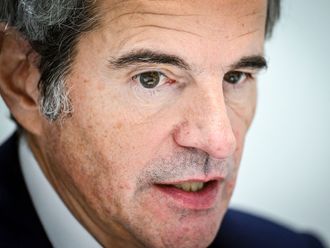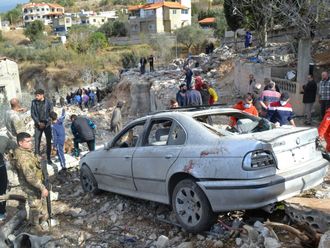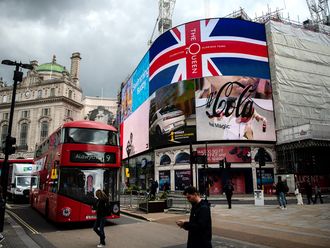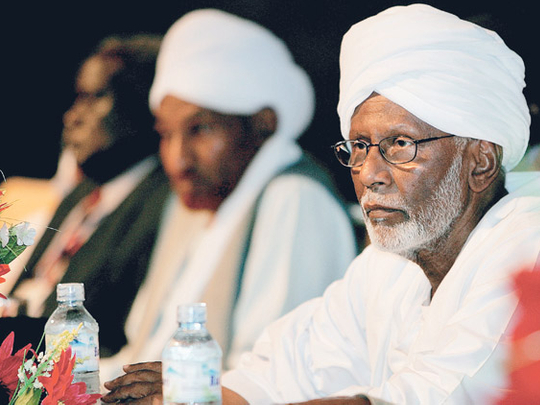
Khartoum: Sudanese authorities arrested Islamist opposition leader Hassan Al Turabi at his home late on Saturday, a month after the country’s first competitive elections in 24 years, his secretary said.
“At around midnight (2100 GMT), a group of security officers arriving in three cars, came and took Hassan Al Turabi from his home,” Awad Babakir told AFP.
Al Turabi, once President Omar Al Bashir’s mentor but now one of his fiercest critics, had denounced last month’s elections as fraudulent and said his Popular Congress Party would not join a future government.
Al Bashir was declared winner in Sudan’s first multi-party election since 1986, a vote marred by an opposition boycott, logistical problems and accusations of fraud.
Al Turabi, an iconic Islamist leader, was last detained in January 2009, two days after he urged Al Bashir to surrender to the International Criminal Court. He has frequently been arrested by the authorities.
In March 2009, the world court issued an arrest warrant against Al Bashir for alleged war crimes and crimes against humanity in the war-torn western region of Darfur. The seven-year conflict there has left 300,000 people dead according to the United Nations, though Khartoum puts the figure at 10,000.
Al Turabi did not run in the country’s presidential race himself. The PCP was instead represented by Abdallah Deng Nial, a Muslim from the mainly Christian south.
"The voting and the counting process are fraudulent," said Al Turabi when votes were being counted.
"We will take the matter to court and if the judge does not rule in our favour, we may have to use other alternatives than the ballot boxes," he added.
Al Bashir’s victory had been virtually guaranteed by the withdrawal of his two key challengers in the presidential race. Sudan’s first multi-party elections since 1986 also included polls for parliamentary and state representatives as well as for the president. But they were marred by allegations of fraud from the opposition and from foreign poll monitors.
Observers from the European Union and the Carter Centre – headed by former US president Jimmy Carter – said after the five days of polling ended on April 15 that the election had failed to reach international standards.


